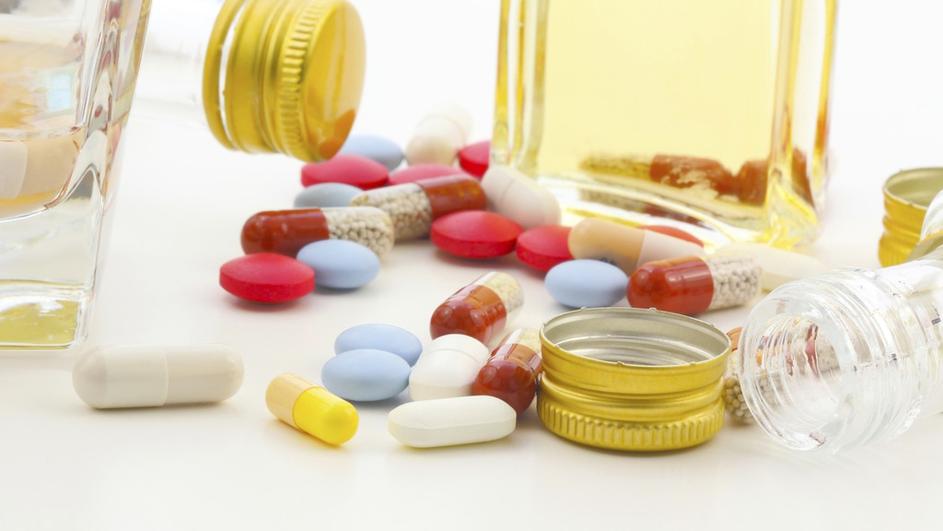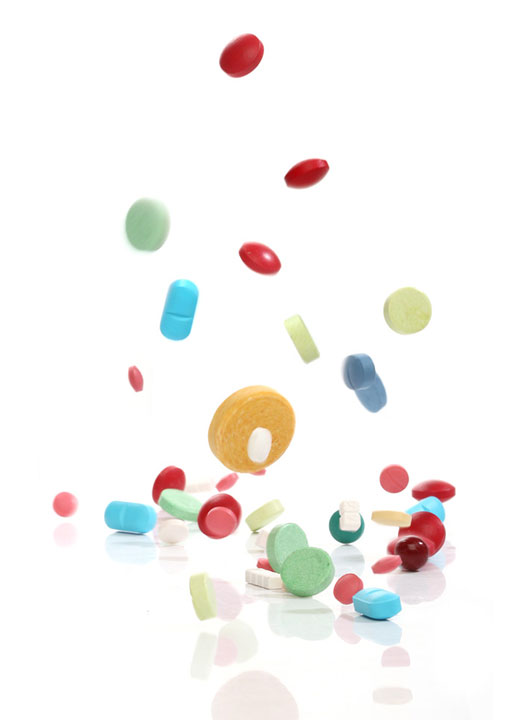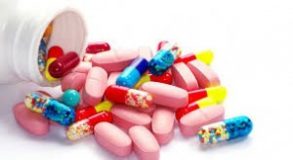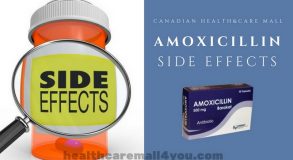«Medical studies results show that alcohol does not block the majority of medical drugs action, and usually does not cause side effects in combination with medications», – reports BBC Future.
But some British experts go so far as to claim that «it is much more dangerous when the patient decides not to take medicine, after drinking a glass of wine, because of any factor causing missed dose, exacerbates the problem of bacterial resistance to antibiotics».
And add that alcohol does not affect most commonly used antibiotics efficiency. But there are exceptions: for example, some drugs of cephalosporin group slow down alcohol digestion process, resulting in increased level of acetic aldehyde in the body. This can lead to undesirable consequences manifesting in:

- dizziness;
- vomiting;
- flushing;
- headaches;
- dyspnea;
- chest pains.
Another antibiotic, poorly compatible with alcohol is metronidazole. However, this view has been questioned after pharmacological studies analysis in 2003. In addition, there was conducted an experiment on a small control group of Finnish men, during which they consumed alcohol with metronidazole for five days without any unpleasant consequences. Nevertheless, these study authors acknowledge that possibilities of adverse effects cannot be excluded, and still, it is not recommended to combine alcohol with metronidazole.
«Thus, there is an extensive list of other antibiotics, reception of which is not dangerous to combine with alcohol. Of course, alcohol is unlikely to help to treat disease: it can make your body dehydrated and inert, but it has nothing to do with drugs»,- adds BBC. And even tells an interesting story on this subject, narrated by retired brigadier general Ian Frazer, who during the Second World War started using penicillin for wounded soldiers in North Africa.
Penicillin had just been invented, and it was in short supply. It was not enough for all soldiers, and then doctors have decided after taking medicine to take patients’ urine and release drug from it again.
Patients in military field hospital were allowed to drink beer, but it led to increase in urine volume and complicated drug release. According to general Fraser, therefore, command decided to forbid drinking beer.
So who to listen to? Agree, it is tempting to believe British scientist. We do not like to limit ourselves in favor of treatment very much. Nothing bad will happen? What can a small shot do to such a large and powerful drug as an antibiotic? Or maybe doctors scare us just to keep to discipline?
Canadian Pharmacy decided to asked doctors themselves about what they think on this subject and whether an antibiotic is compatible with alcohol or not.
Experts Opinion
It is better to refrain than to suffer from toxic hepatitis.
Johanna Brandt, pharmacologist:
— Favorite patients’ myth is that antibiotics can be combined with alcohol. They say, doctors purposefully mystify, but in fact – nothing bad will happen from a pair of glasses of wine. This myth is as old as antibiotics. And there were no serious studies that alcohol does not influence Canadian healthcare antibiotics effect in the body. All this is uninformed people hypotheses, or «interviews», or some «British doctors» views.
Take any instruction to any antibiotic of any group (e. g. ampicillin), and it is put down in black and white there: combined reception with alcohol is contraindicated. For different reasons.
There are medications, which action is weakened by alcohol, their absorption is impaired. Yes, you will not die, but agree, it is unpleasant enough if you take Canada antibiotics, which won’t give any effect. One glass will these drugs reduce the effect to nothing. And you will be treating your disease for a long time. You can lose a tooth if your dentist appointed antibiotics, but you decided to drink a little to relieve stress. Or «transfer» bronchitis into pneumonia.
And there are also antibiotics, the combination of which with alcohol is simply dangerous to life. For example, ampicillin is forbidden to take with alcohol. There may be a sharp reaction – from jaundice to acute toxic hepatitis, wherewith he may die. And, despite miracles of modern intensive care, patients, especially after holidays, die from consequences of combining drugs and alcohol.
There is such a moment: antibiotics are essentially a drug-killers, they kill bacteria, and bacteria are a biological substance which leaves cleavage products. And all this with alcohol enters blood flow. Imagine how overall toxic load on the body increases. Reactions may be different – from sickness, vomiting and headaches to severe allergic reactions and renal complications.
So if you are taking a course of antibiotics, it’s better to a little bit refrain from drinking alcohol during these days. Besides, Canadian antibiotics are often prescribed for 5 – 7 days, maximum – 12 – 14 days. It is better to wait than to receive an unpredictable reaction.
Alcohol Plus Drugs is Dangerous to Heart
Oliver Cunningham, cardiologist, MD, Professor:
— We, cardiologists, are often face the fact that patients are taking drugs and alcohol together. This is a very big problem. Alcohol lowers arterial blood pressure exactly in the period of consumption. And if a person is already taking medicines, for example, for hypertension or any other drugs affecting vessels, these drugs already expand them, reducing blood pressure. And this accumulation, i. e. effect enhancement, can lead to arterial hypotension development – that is, blood pressure reduction. And in this situation, there is a high probability to fall unconscious. Sharp arterial pressure decrease up to the loss of consciousness is called collapse. This is a very dangerous condition when blood circulation disturbed – both in brain and myocardium.
But there are drugs, reception of which must not be missed. For example, influencing blood coagulation. Did not take the drug – disrupted blood coagulation system, blood clot appeared. And alcohol only increases thrombosis risk, because it dehydrates and thickens blood.
I often hear a question: «What pill to take, if I drank too much alcohol and suffer from a headache? » The safest drug to take will be some pill based on acetylsalicylic acid (aspirin), but not on an empty stomach. But analgetics with paracetamol should be put far aside. Because paracetamol combined with alcohol «kills» liver.
What Other Pills are Not Compatible with Alcohol?
It is better to completely give up alcohol if you are taking:
-
 drugs, containing paracetamol and its analgetic and anti-inflammatory agents. Paracetamol is already not very good for the liver, and in combination with alcohol its hepatotoxic effect sharply increases;
drugs, containing paracetamol and its analgetic and anti-inflammatory agents. Paracetamol is already not very good for the liver, and in combination with alcohol its hepatotoxic effect sharply increases; - antidepressants (possible reaction – hypertensive crisis and even cerebral hemorrhage);
- neuroleptics (violate movements coordination, cause seizures, difficulties with breathing when taken with alcohol);
- most cardiovascular drugs (possible reaction – cardiac arrhythmia: tachycardia or bradycardia);
- antispasmodics (possible reaction – sharp arterial blood pressure decrease);
- antihypertensive agents – for lowering high arterial blood pressure (sharp blood pressure decrease up to collapse);
- hypnotics – barbiturates such as luminal, phenobarbetal (may cause apneusis during sleep, with a risk of death!);
- diuretics (diarrhea and vomiting, in severe cases – acute cardiac insufficiency).



